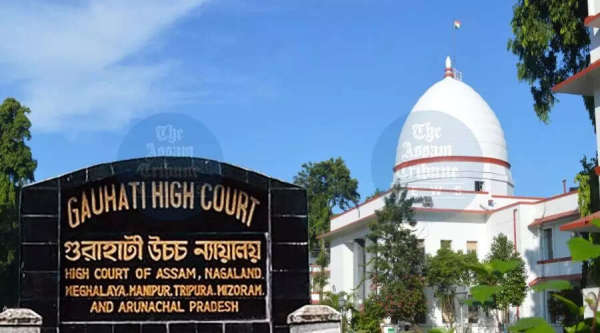
 Court Orders Complete File Submission
Court Orders Complete File Submission
Guwahati, Sept 2: On Monday, the legal representative for the NC Hills Autonomous Council presented some documents regarding the allocation of 3,000 bighas of land to a cement manufacturing facility in Dima Hasao. However, the Gauhati High Court instructed the council to submit the entire file that includes the decision to allocate this significant portion of land within a Sixth Schedule area to the private entity.
Justice Sanjay Kumar Medhi emphasized, "The aim of the previous order was not to review a few documents but to examine the complete file that details the decision regarding the substantial land allocation." He directed the council to bring the file for the next court session.
During the hearing, the State's advocate general, Devajit Saikia, informed the court that a three-member committee had been established by the State government to investigate the issue, and it has already submitted its findings.
Saikia expressed a desire to file an affidavit based on the report to clarify whether the allotment of 3,000 bighas was warranted.
When Justice Medhi pointed out that the court had not requested such an inquiry, Saikia remarked that the previous court order had caused significant concern, prompting the government to seek clarification.
Saikia further stated that the "correct information" had not been presented to the court, leading to a "misleading impression."
Justice Medhi expressed concern over the allocation of such a large area of land in a Sixth Schedule district to a private firm, insisting on reviewing the records to understand the policy decision behind it.
The NCHAC's counsel noted that in 1998, 6,000 bighas of land had been allocated to the industry department. Due to non-utilization, the council's executive committee opted to reduce the land and allocate 3,000 bighas to the company.
Justice Medhi raised critical questions: "Where is the environmental clearance from the Government of India? How can a cement factory operate here? What about the ecological significance of Umrangsu? It is a vital ecological area. How can a cement factory be established on 3,000 bighas? Present the records. The AG claims everything is in order. If that is the case, we have no objections. We will adhere strictly to regulations."
When the advocate general mentioned that the cement company acquired the land at Rs 2 lakh per bigha, Justice Medhi questioned, "What happens to the Ceiling Act in this case?"
The court instructed the government counsel to submit an affidavit.
"We must find a balance... ensuring the welfare of the tribal communities. The government must address the Sixth Schedule concerns. We are not opposed to industrial development in the region, but we are intrigued by the allocation of 3,000 bighas to a private entity," the court stated, also requesting information on the land allocated to other cement companies and public sector units in the State for comparative analysis.